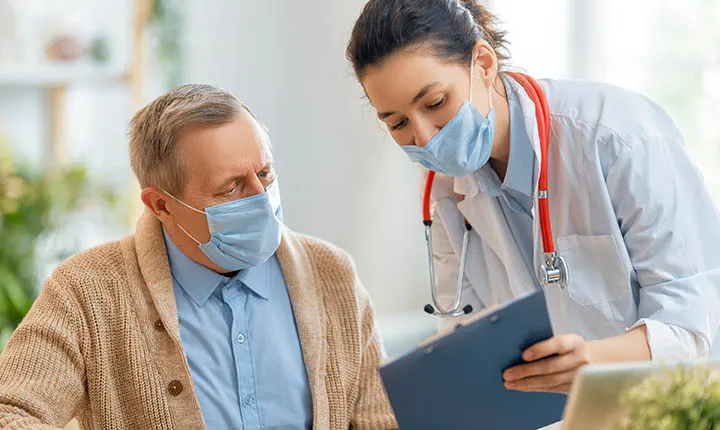The Importance of Respiratory Hygiene and Cough Etiquette

Respiratory illnesses and infections can spread from person to person with ease. To prevent the transmission of these infections in hospital settings, healthcare facilities should never understate or ignore the importance of respiratory hygiene and cough etiquette.
These facilities need to implement thorough prevention strategies and furnish patients and visitors with the supplies they need to keep themselves and others safe. Want to keep preventable illnesses and infections at bay? Here's how to encourage proper respiratory hygiene and etiquette in your hospital.
Post Visual Reminders
Patients and visitors will have a hard time following hygiene and etiquette standards if they don't know what those standards are. The best way to inform them of these standards is to post visual reminders (in multiple languages) outside of emergency departments, physician offices, outpatient clinics, and other essential facilities.
These reminders should inform patients and visitors of the most common symptoms of a respiratory illness (sneezing, coughing, etc.) and what they should do if they're currently exhibiting one or more of those symptoms.
Provide Patients and Visitors With Supplies
The most common measures taken to prevent the spread of respiratory illnesses include covering the mouth or nose when sneezing and coughing, properly disposing of used tissues, and thoroughly washing the hands with non-antimicrobial soap or an alcohol-based handwash.
Providing patients with tissues and no-touch receptacles to toss them in, along with conveniently placed hand sanitizing stations, will help reduce the spread of germs exponentially.
Masks for Protection
The importance of respiratory hygiene and cough etiquette should be stressed when the risk of spreading and contracting a respiratory illness is unusually high, such as during a pandemic or flu season.
During these tumultuous times, hospitals should offer masks (procedure or surgical) to people who are coughing or sneezing. In addition, they should separate the potentially ill from the healthy. Ask people who show signs of respiratory illness to remain six or more feet away from others when in the waiting room. And when it comes time to admit them, place them in a room away from the more vulnerable patients.
Providing patients with exemplary patient care for respiratory issues is something every hospital must strive for. At Med One Group, we provide hospitals with the equipment and supplies they need to keep patients happy, healthy, and safe. Come and shop our full line of hospital ventilator equipment and other medical equipment today!
